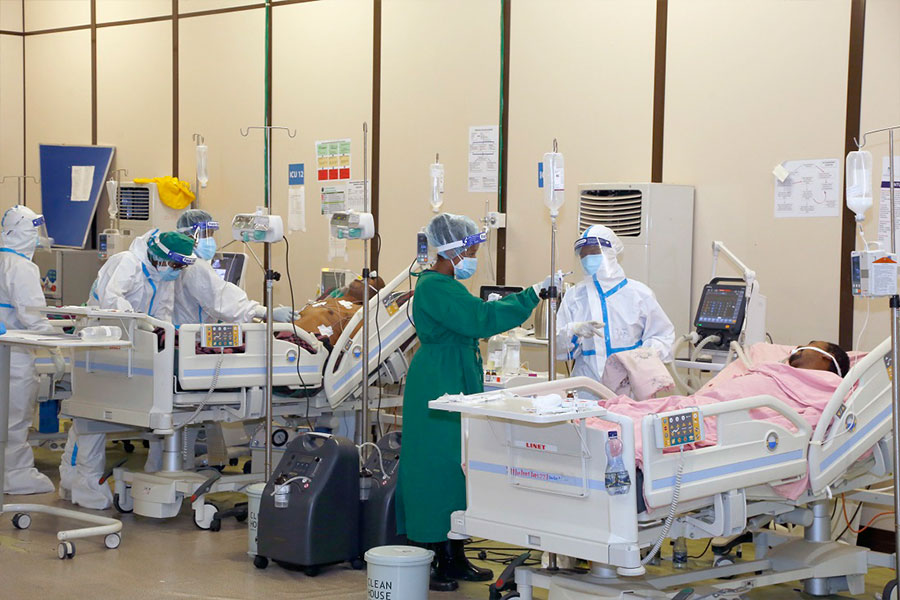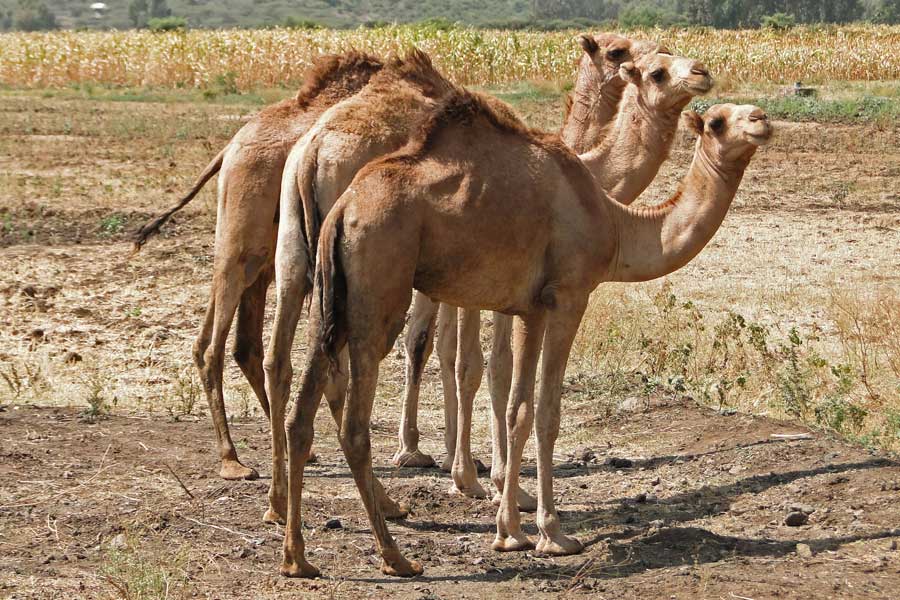
Radar | Jun 15,2025
Jul 13 , 2019
By Dawit Tadesse
The Ethiopian government has announced that it is restarting the negotiation process to join the WTO within two years. The question we have to raise is whether or not WTO should remain a priority for Ethiopia under the current economic and political situation? This central question entails other specific relevant queries that need proper consideration. We should be wondering whether there are other bilateral and multilateral trade and investment agreements that Ethiopia has and should utilise effectively before seeking WTO membership. What this implies is that we, as a nation, should be in a position to effectively use these trade and investment agreements. Is it not wise to choose to practise swimming in a river before swimming in the ocean?
On the other hand, to be a WTO member country is not an easy process. Government policy makers must reconsider their current decision by keeping three questions in mind: how much does the implementation cost? does the nation have a strong institutional capacity that befits WTO membership what are the problems developing countries face in these areas?
According to an article in SEDOS Bulletin, the WTO was set up to promote consumption and raise living standards throughout the world by encouraging and regulating free trade in the global market. However, the WTO has disregarded some of its commitments and has often favoured the interests of multinational companies, at the expense of African and other developing countries. Many African countries opposed the WTO negotiations process by arguing that while the developing countries have liberalised their markets, developed nations are not keeping their commitment to open their markets to textiles and agricultural products produced by developing countries.
For example, agriculture accounts for 35pc of Africa’s wealth and production, 40pc of exports and 70pc of employment. More than 70pc of the African population lives in rural areas, in large households that are often headed by women. The agricultural community is the most vulnerable group in Africa. They will continue to outnumber the urban population for a long time to come. Agriculture is vital in Africa as it is the source of livelihood. It provides basic food and is the source of foreign exchange most countries depend on to import essential products. Some agreements of the WTO could threaten this sector by flooding the African market with European and US food.
In an article in The Guardian, Aurelie Walker shows how the WTO has failed developing nations by citing recent studies indicating WTO membership has been unable to deliver the promised pro-development changes. In this regard, developing countries have been completely sidelined by the economic and political interests of global powers.
Cotton subsidies paid to rich-country producers in the past year have created barriers for the 15 million cotton farmers across West Africa who were trying to trade their way out of poverty, and five million of the world’s most impoverished farming families have been forced out of business and into deeper poverty because of those subsidies.
WTO members have failed even to agree on how to reduce the vast subsidies paid to rich world farmers, whose overproduction continues to threaten the livelihoods of developing world farmers.
In trade agreements, the WTO has also failed to clarify the deliberately ambiguous rules on concluding trade agreements that allow the most impoverished countries to be manipulated by the rich states. In negotiations with the EU, African countries have been forced to eliminate tariffs on up to 90pc of their trade, because no clear rules exist to protect them.
WTO additionally pledged new policies to improve access to its expensive and complicated legal system have failed. In 15 years of dispute settlement under the WTO, 400 cases have been initiated. No African country has ever acted as a complainant, and only one less developed country has ever filed a claim.
Under the current situation, African countries are the “losers” of globalisation. The continent’s riches (petrol, minerals, agriculture, wood, fish) are being exploited by multinationals and taken out of the country with insignificant benefits for Africans.
As a result of WTO accession and free trade, many worrying stories are appearing. The same article gives several examples. One of these was about a group of women in Burkina Faso, who some years ago formed a co-operative to make children’s clothes.
The business went quite well for a time, but second-hand clothes from Western countries started flooding the market. They had to lower prices, reducing their benefits, but their dresses were beautiful, and people still bought them. But once cheap clothes from Asia arrived, their business went bust.
In our neighbour, Kenya, small flower farms can hardly earn a living. Only bigger farmers that send their flowers to Europe can survive.
All the above problems show that developing countries have been experiencing difficulties because of free trade and WTO membership. There is also the fact that accession to the WTO can be a long and time-consuming process that eats up significant resource investment. Drawing on resources and expertise from an already stretched human resource sector in Ethiopia and the cost of implementing WTO agreements, it is fair to raise the question of priority for Ethiopia to be a WTO member.
Presently, there is no reason to rush to join the WTO. Instead, we have to use effectively and efficiently the bilateral and multilateral trade and investment agreements that Ethiopia already has. In the meantime, we have to shift the limited resources we have and work hard first to build institutional capacity and lay the foundation for a healthy economy. We have to develop the capacity of the domestic private sector to be more competent before we open our door for WTO membership.
Otherwise, foreign businesses will control all the nation’s profitable sectors. We have taken a long time to negotiate more favourable terms. We should stick to that plan. Meanwhile, we need to study seriously those developing countries, especially African countries, that are members of WTO to understand what tangible benefits they realised.
Broader discussion must be conducted on the implication of WTO. All relevant stakeholders should be consulted, including parliamentarians, business and civil society. It is also necessary to organise discussion groups around why we are not able to effectively utilise the trade and investment agreements Ethiopia already has.
Merely choosing to be a member of WTO to make the IMF and the World Bank happy might lead to more disadvantages rather than benefits. Instead, government policymakers should have the responsibility of giving attention to and selecting the nation’s priorities.
PUBLISHED ON
Jul 13,2019 [ VOL
20 , NO
1002]


Radar | Jun 15,2025

Agenda | Apr 03,2021

Fortune News | Jun 26,2021

Agenda | Jul 28,2024

Fortune News | Jan 25,2020

My Opinion | 132041 Views | Aug 14,2021

My Opinion | 128437 Views | Aug 21,2021

My Opinion | 126364 Views | Sep 10,2021

My Opinion | 123983 Views | Aug 07,2021





Dec 22 , 2024 . By TIZITA SHEWAFERAW
Charged with transforming colossal state-owned enterprises into modern and competitiv...

Aug 18 , 2024 . By AKSAH ITALO
Although predictable Yonas Zerihun's job in the ride-hailing service is not immune to...

Jul 28 , 2024 . By TIZITA SHEWAFERAW
Unhabitual, perhaps too many, Samuel Gebreyohannes, 38, used to occasionally enjoy a couple of beers at breakfast. However, he recently swit...

Jul 13 , 2024 . By AKSAH ITALO
Investors who rely on tractors, trucks, and field vehicles for commuting, transporting commodities, and f...

Jul 12 , 2025
Political leaders and their policy advisors often promise great leaps forward, yet th...

Jul 5 , 2025
Six years ago, Ethiopia was the darling of international liberal commentators. A year...

Jun 28 , 2025
Meseret Damtie, the assertive auditor general, has never been shy about naming names...

Jun 21 , 2025
A well-worn adage says, “Budget is not destiny, but it is direction.” Examining t...

Jul 13 , 2025 . By YITBAREK GETACHEW
The Addis Abeba City Revenue Bureau has introduced a new directive set to reshape how...

Jul 13 , 2025 . By BEZAWIT HULUAGER
Addis Abeba has approved a record 350 billion Br budget for the 2025/26 fiscal year,...

Jul 13 , 2025 . By RUTH BERHANU
The Addis Abeba Revenue Bureau has scrapped a value-added tax (VAT) on unprocessed ve...

Jul 13 , 2025 . By NAHOM AYELE
Federal lawmakers have finally brought closure to a protracted and contentious tax de...